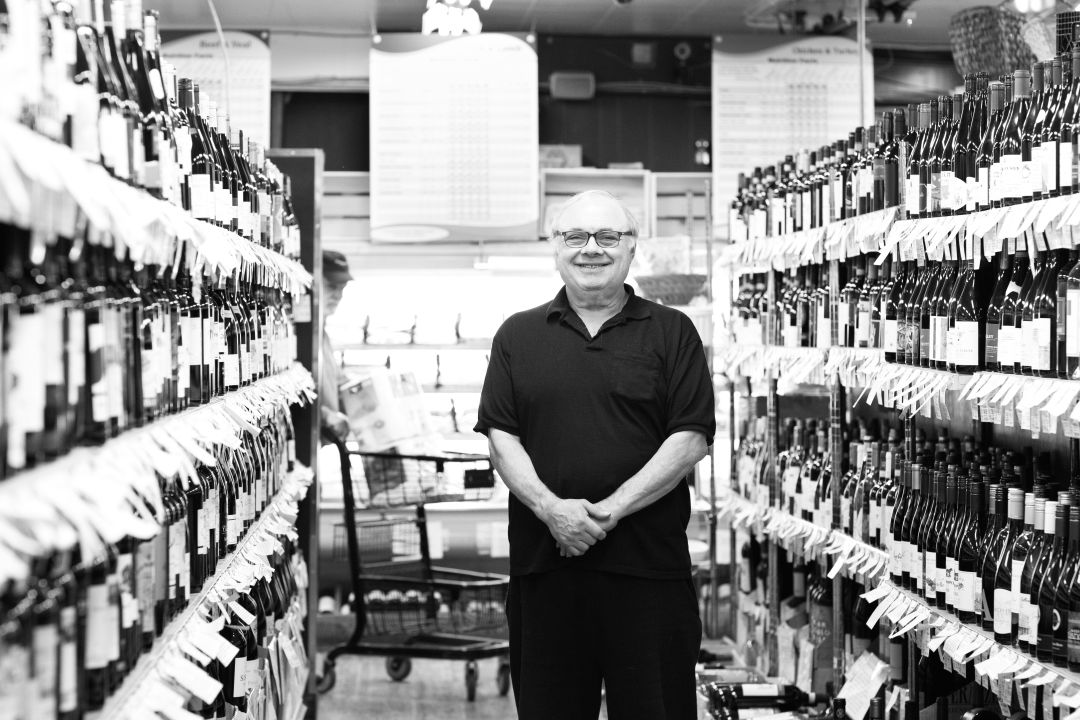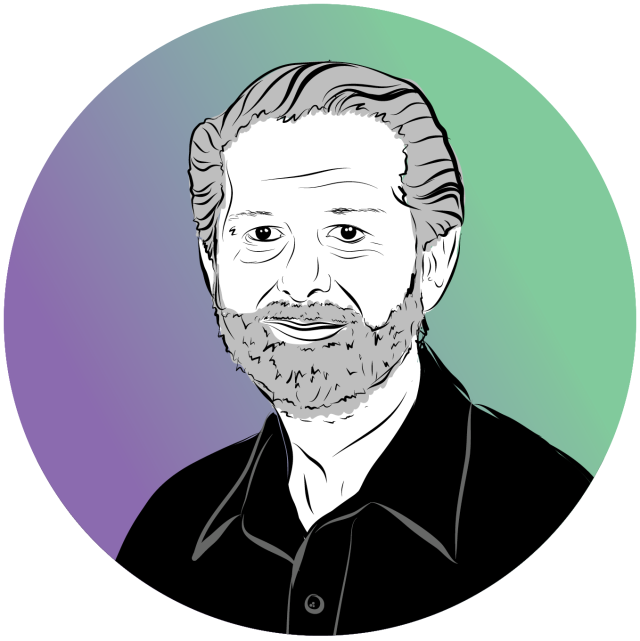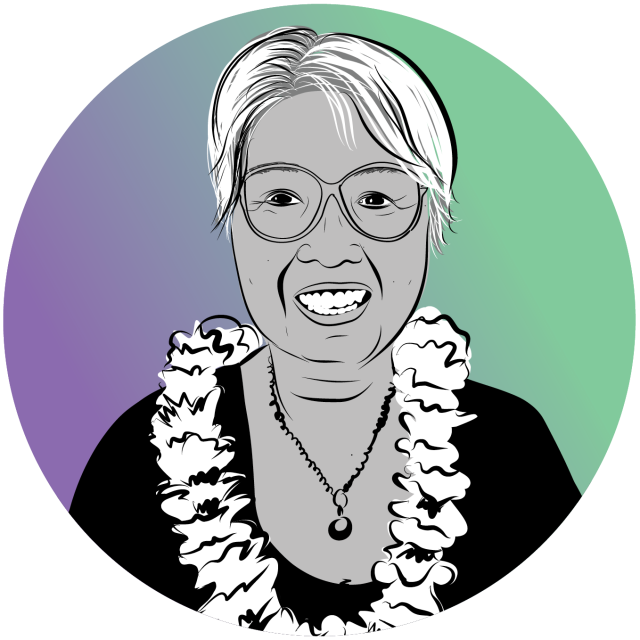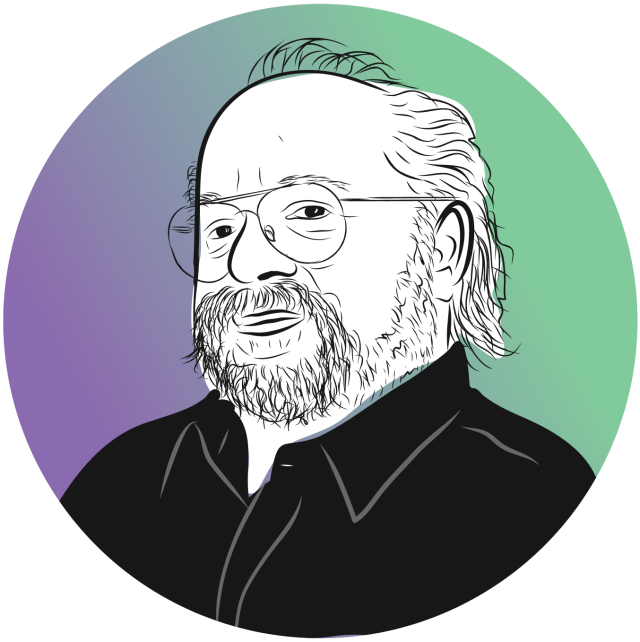Remembering the Washingtonians We Lost to Covid-19

Steve Shulman, friend and grocer.
Image: Courtesy of Christina Linden
A Market Where They Know Your Name
Customers at Steve Shulman’s grocery store, Leschi Market, often felt like they had been welcomed into a surrogate home. Yousef Shulman, Steve’s nephew and business partner, says that was because of Steve’s magnetism. “Everybody felt that he was part of their family,” he says.
Terri Nakamura, a Leschi Market customer since 1978, says part of what made Steve remarkable was his ability to cultivate meaningful relationships. “Steve had a gift of remembering things that made me feel special.” She counted him as a friend.
Steve passed away in mid-March; he’d been working at the market, opened by his family in the 1940s, since he was young. For the past few decades, he was a well-known sight behind the meat counter, helping each customer select the right cut. His generosity transcended the market and activated neighborhood council district meetings, campaign offices, and numerous nonprofit fundraisers over the years. Locals still remember how, decades ago, he would speak at meetings of the 37th Legislative District Democrats. “He was such a part of everybody’s hearts,” Yousef says. —Sam Luikens

Nourishment When We Needed It Most
Many know about Tomas Lopez because of his act of ad hoc taco sales: When his Tacos El Tajin truck got stuck in a massive 2017 traffic jam on I-5, he opened for business, selling tacos to frustrated drivers trapped on the interstate. But such cheerful resilience wasn’t out of character. Lopez was among the city’s food truck first wave—starting Tacos El Tajin first out of a minivan over a decade ago and building it into a business with two trucks in South Lake Union and a brick-and-mortar restaurant.
Tacos El Tajin thrived because of its food and because of Lopez’s generous, gregarious nature. “Anybody who came up, he knew you. He knew enough of every other language to say hi to people in their native tongue,” says Jonathan Amato, the managing director of SeattleFoodTruck.com. “It’s just amazing what just one truck or two trucks were able to bring to our community.”
On April 2, Lopez died from Covid-19 at age 44, but the people he connected with made clear he was not forgotten. His family started a GoFundMe, aiming to raise $10,000 for funeral expenses and to keep the beloved business running. By the time it closed, hundreds of supporters had donated $62,241 and filled the comments with gratitude for his al pastor tacos, for his spirit. —Stefan Milne

The Very Model of a Modern Musical Director
Alan Lund made Seattle sing. In the classrooms of Bellevue and then the Highline School District, he taught students how to love music and play it correctly. As part of the Seattle Opera Chorus in the 1960s, his baritone voice fueled Tosca and Carmen before he was promoted to assistant chorus master. And for decades, he tuned the Seattle Gilbert and Sullivan Society into a harmonious ensemble.
Though the group is one of Seattle’s oldest performing arts groups, they didn’t have an orchestra until Lund joined as music director in the 1970s. Conducting the musicians and coaching the vocalists, he helped build the program of semi-professional performers who take on famous works of Gilbert and Sullivan musical theater.
“We heard from many folks who said he was the reason they continued to perform,” says Catherine Weatbrook, president of the group’s board of directors. “It was the joy, the training, the finely tuned ear.” Lund and his equally musical wife, Ellen, were in the organization for decades before he succumbed to complications of coronavirus in March.
“This seems such an extreme statement, but I don’t know that we’d be here but for him,” says Weatbrook. “His contributions are huge. Both to us and to the greater Seattle arts community.” —Allison Williams

An Island Retreat for Maple Leaf
A smile and a warm welcome from owner Elizabeth Mar greeted every customer at Kona Kitchen. Known to many as “grandma” or “auntie,” Mar’s infectious spirit drew people toward her and built a welcoming sense of ohana, a Hawaiian word meaning family, around the restaurant.
Elizabeth, along with her daughter and son-in-law, Angie and Yuji Okumoto opened their Maple Leaf location 18 years ago. Last year they expanded to a second location in Lynnwood, which amassed a similar following. In late March, both Elizabeth and her husband Robert died from Covid. With the passing of their matriarch, the restaurant’s community showered support in the form of flowers, online memorials and charitable donations made in her name.
“Whether it’s your employees, whether it’s your customers, that’s the kind of environment that I think we want to build,” says Yuji. “And I think that’s what Liz always strived to do.”
During the pandemic the Okumotos found that the best way to create that environment was to reopen for takeout and connect through food, even after losing both Mars. Angie cites a desire to nourish the customer circle her mother had helped grow. “It was more of a drive to do this for our Kona ohana.” —Marisa Comeau-Kerege

Training the Next Generation of Biologists
A University of Washington School of Medicine professor of pathology, Dr. Stephen Schwartz didn’t just specialize in vascular biology—he helped create the field, introducing the idea that blood vessels are more complicated than just body plumbing.
Dr. Schwartz was a mentor and colleague that pushed others to explore their own complex ideas and research. Dr. Chuck Murry, who completed his postdoctoral fellowship in Dr. Schwartz’s laboratory in the ’90s, was drawn to UW by Dr. Schwartz’s “fierce intelligence and drive to understand what was really alluring.”
After he passed away on March 17, an online memory page set up by the North American Vascular Biology Organization—which he cofounded—garnered comments by those he’d met and inspired. He primed the next generation of cardiovascular science researchers to share his passion, says Dr. Murry: “He was very good at that and modeled it through his own genuine love and passion for science.”
Everyone who worked with Schwartz knew he liked to argue and discuss, supported by a phenomenal memory and decades of knowledge. “He was really a beloved member of the community,” Dr. Murry says. “And he believed that searching for scientific truth was his highest calling.” —Nicole Martinson




